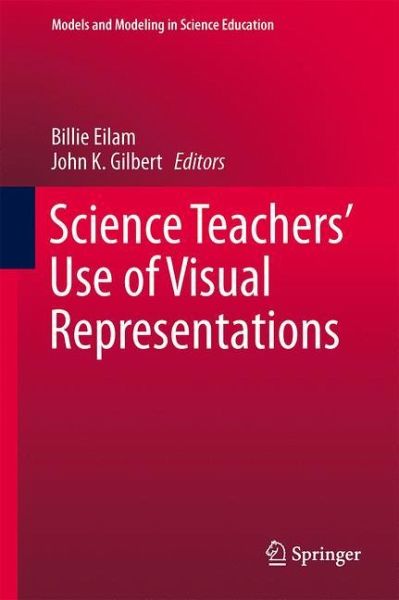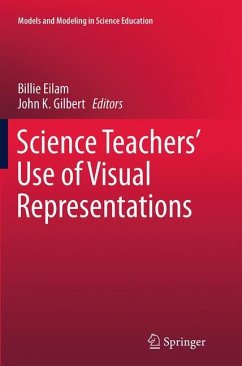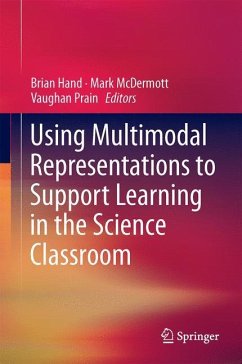
Science Teachers' Use of Visual Representations

PAYBACK Punkte
38 °P sammeln!
This book examines the diverse use of visual representations by teachers in the science classroom. It contains unique pedagogies related to the use of visualization, presents original curriculum materials as well as explores future possibilities.The book begins by looking at the significance of visual representations in the teaching of science. It then goes on to detail two recent innovations in the field: simulations and slowmation, a process of explicit visualization. It also evaluates the way teachers have used different diagrams to illustrate concepts in biology and chemistry.Next, the boo...
This book examines the diverse use of visual representations by teachers in the science classroom. It contains unique pedagogies related to the use of visualization, presents original curriculum materials as well as explores future possibilities.
The book begins by looking at the significance of visual representations in the teaching of science. It then goes on to detail two recent innovations in the field: simulations and slowmation, a process of explicit visualization. It also evaluates the way teachers have used different diagrams to illustrate concepts in biology and chemistry.
Next, the book explores the use of visual representations in culturally diverse classrooms, including the implication of culture for teachers' use of representations, the crucial importance of language in the design and use of visualizations and visualizations in popular books about chemistry. It also shows the place of visualizations in the growing use of informal, self-directed science education.
Overall, the book concludes that if the potential of visualizations in science education is to be realized in the future, the subject must be included in both pre-service and in-service teacher education. It explores ways to develop science teachers' representational competence and details the impact that this will have on their teaching.
The worldwide trend towards providing science education for all, coupled with the increased availability of color printing, access to personal computers and projection facilities, has lead to a more extensive and diverse use of visual representations in the classroom. This book offers unique insights into the relationship between visual representations and science education, making it an ideal resource for educators as well as researchers in science education, visualization and pedagogy.
The book begins by looking at the significance of visual representations in the teaching of science. It then goes on to detail two recent innovations in the field: simulations and slowmation, a process of explicit visualization. It also evaluates the way teachers have used different diagrams to illustrate concepts in biology and chemistry.
Next, the book explores the use of visual representations in culturally diverse classrooms, including the implication of culture for teachers' use of representations, the crucial importance of language in the design and use of visualizations and visualizations in popular books about chemistry. It also shows the place of visualizations in the growing use of informal, self-directed science education.
Overall, the book concludes that if the potential of visualizations in science education is to be realized in the future, the subject must be included in both pre-service and in-service teacher education. It explores ways to develop science teachers' representational competence and details the impact that this will have on their teaching.
The worldwide trend towards providing science education for all, coupled with the increased availability of color printing, access to personal computers and projection facilities, has lead to a more extensive and diverse use of visual representations in the classroom. This book offers unique insights into the relationship between visual representations and science education, making it an ideal resource for educators as well as researchers in science education, visualization and pedagogy.














